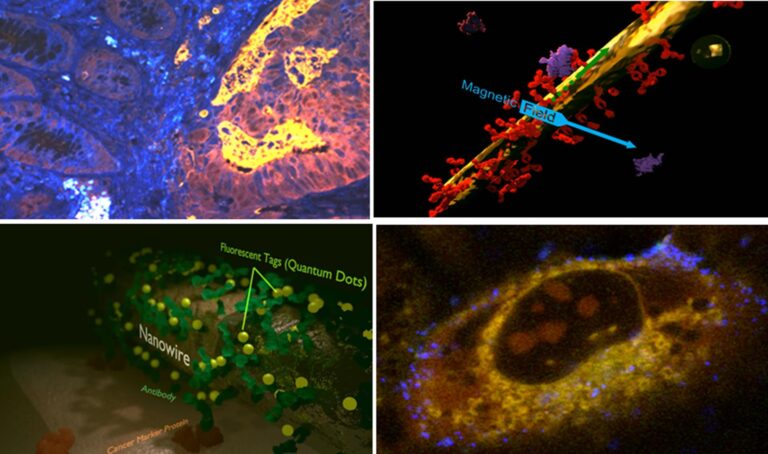Cancer is one of the most dreaded words in the English language. It kills around two million people in Europe every year – approximately four times the population of Luxembourg.Early detection could help prevent a third of cases, but, with current technology, tumours can grow for 10 years or longer before blood tests will detect them.Tommaso Foglia of Innova, an innovation support consulting firm that is involved in the EU-funded Namdiatream project, said: ‘Although some types of cancer can be treated more effectively than others, and each treatment – such as chemotherapy or radiotherapy – has specific advantages and drawbacks, it is well known that one of the most effective ways to improve cancer’s treatment is its early diagnosis.’This is the motivation behind Namdiatream, a four-year project that brought together a team of 22 scientists and company executives.“‘One of the most effective ways to improve cancer’s treatment is its early diagnosis.’Tommaso Foglia, Innova‘Our strategic vision is to reduce cancer mortality and social costs for national healthcare systems (and) to increase the quality and expectancy of life of citizens worldwide,’ Foglia said.The project, which runs until 2014, takes its name from the very products it has created – nanotechnological toolkits for multi-modal disease diagnostics and treatment monitoring.Visually, one would find it hard to measure their work: one million nanometres make up the head of a pin, whilst a human hair is around 60 000 nanometres in diameter.‘Namdiatream addresses the widespread social need developing ultra-sensitive devices for the early diagnosis and imaging of three widespread cancer types: lung, breast and prostate cancer,’ Foglia said.Nanotechnology has already provided many different medical solutions for diagnostics. Nanoparticles have outstanding magnetic, optical and electronic features that, once introduced in drug delivery systems, can enable rare approaches for cancer treatment and other diseases.Nano-solutionNamdiatream’s solution is to develop microscopic tools able to detect and quantify specific tumour markers that can be found in the human body when cancer cells are present.The Namdiatrem project is coordinated by Prof. Yuri Volkov (Trinity College Dublin, Ireland)The Namdiatream project is coordinated by Prof. Yuri Volkov (Trinity College Dublin, Ireland)Their work builds on existing efforts, such as wafer thin ‘lab-on-a-chip’ diagnostic tests, and will provide doctors with tests so sensitive they can be used on tiny amounts of blood or saliva.‘The diagnosis can be performed using micro-litre volumes of biological fluids thus minimising the invasiveness and costs of diagnostic procedures,’ Foglia explained.‘This fosters the early detection of cancer by means of routine screening among the population, encourages a prompt intervention to treat the disease (and) permits a more effective evaluation of disease progression during the treatment,’ he added.Industry has already shown interest in the project. Two companies are actively collaborating with many academic and research partners, said Foglia. And they have shown a clear commitment to translate breakthroughs into innovative industrial applications’.
This article was originally published in Horizon, the EU Research and Innovation magazine.
Add to favorites:
Favorite
Share:
Nano-tech sensors to find cancer earlier
Listing Description
Documents
No documents available.
Ask KETMarket to make a contact
Connect with the Listing Owner!

Video
Related Funding and Finance Opportunities
Unlock Exclusive Funding Opportunities!

Upgrade to Premium now and never miss an important opportunity again! Already a premium member? Log in here to explore your matches.

